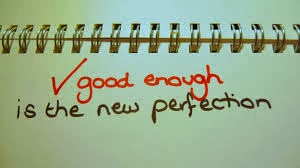There’s a pretty good Wikipedia page on Winnicott and I had to share this snippet for its delicious applicability to caregiving:
A central theme running through Winnicott’s work was the idea of play. Winnicott thought that playing was the key to emotional and psychological well-being. By “playing,” he meant not only the ways that children of all ages play, but also the way adults “play” through making art, or engaging in sports, hobbies, humor, meaningful conversation, et cetera. At any age, he saw play as crucial to the development of authentic selfhood, because when people play they feel real, spontaneous and alive, and keenly interested in what they’re doing.
Winnicott must have been a superb caregiver himself. By all accounts, he was a great listener and a compassionate man. He was a nurturer and an enabler. He certainly knew what it meant to ‘hang out’, to ‘be real’, to wile away the hours with a shared interest over a cup of tea.
Caregivers intuitively feel ‘real’ and we are naturally aware of our own bodies in relation to others’. We are in touch with others constantly and so feel ‘real’. I’ve blogged before about being real as a caregiver and how irony is not part of our natural state of being.
Winnicott wrote:
a mother is neither good nor bad nor the product of illusion, but is a separate and independent entity: The good-enough mother … starts off with an almost complete adaptation to her infant’s needs, and as time proceeds she adapts less and less completely, gradually, according to the infant’s growing ability to deal with her failure. Her failure to adapt to every need of the child helps them adapt to external realities.4,5
What if, in leaving space for possibility, for failure, for authentic exchange, we may preserve our true selves and that results in good care? Reading Winnicott, I want to go out and play. I want to risk something for the sake of living in the moment. I want to seek out those intimate moments when I trust enough to let go my loved one’s hand or to look away as they attempt a new skill. Because at the end of the day, there is dignity in enabling imperfect humanity.
